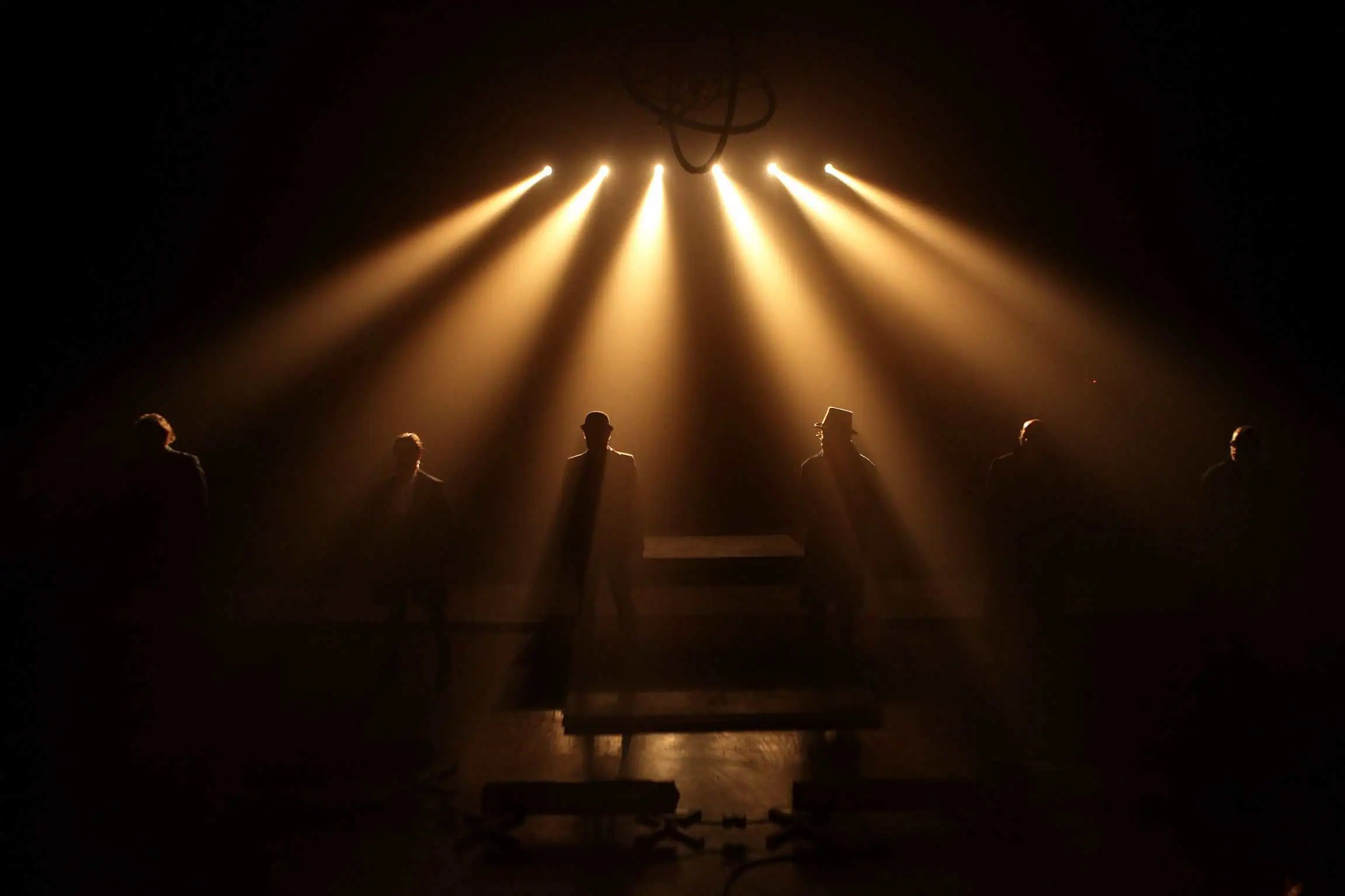
As stage managers, we work behind the scenes, ensuring that everything runs smoothly while the spotlight shines elsewhere. What many people don’t realize is that the skills we use—managing moving parts, anticipating challenges, and balancing creative and technical demands—are directly transferable to leadership. Sharon delPilar chat at length about this in a The Half-Hour Podcast. Listen to it here!
Effective leadership, much like stage management, relies on a balance of foresight, communication, empathy, and composure. Leaders must proactively anticipate challenges, maintain clear and open lines of communication, and demonstrate flexibility while addressing the human dynamics within their teams. Under pressure, leaders who stay composed set the tone for the group’s resilience and productivity. By applying these principles, we can guide our teams successfully, ensuring both individual and collective performance flourishes in any environment.
Let’s explore four core leadership lessons that we, as stage managers, use daily and how they can help us all become stronger leaders.
Anticipation and Preparedness: Always Stay Two Steps Ahead
As stage managers, we don’t just react to things as they happen—we anticipate challenges and prepare in advance. As my good friend Jay tells me: proper prior planning prevents poor performance. The 6 Ps.
For example, if a set piece malfunctions or an actor misses an entrance, we already have a backup plan ready. This habit of thinking ahead is just as crucial in leadership.
As leaders, we need to develop the ability to foresee potential challenges before they arise. Whether it’s anticipating roadblocks in a project or understanding the evolving needs of our team, being proactive helps prevent small problems from becoming big ones. Leadership isn’t just about managing the present—it’s about preparing for what’s ahead.
How to apply it: When starting a new project, map out potential challenges. By preparing for “what if” scenarios in advance, we position ourselves to handle the unexpected without panic. The more prepared we are, the better we’ll be at guiding our team through difficult moments.
Communication is Key: Lead Like We’re Calling Cues
In the theater, timing and communication are everything. Stage managers are responsible for calling cues and making sure that everyone—actors, lighting, sound, and crew—knows exactly what to do and when to do it. The same applies to leadership. Clear, concise communication is essential to ensure that everyone on the team is aligned and working toward the same goal.
As leaders, it’s not just about giving directions; it’s about making sure we are understood and that our team feels comfortable coming to us for clarification. Effective leadership means we not only communicate our vision clearly but also listen actively to our team’s feedback and concerns.
How to apply it: Let’s practice clear and open communication with our team. We can do this by setting clear expectations, defining everyone’s roles, and holding regular check-ins to make sure we’re all staying on course, together. Creating a culture of open dialogue and active listening will help prevent misunderstandings and foster stronger team collaboration.
Empathy and Flexibility: Balancing the Technical and the Human
Stage management is about more than just coordinating technical elements. We work closely with actors, directors, and crew members on an artistic level too—each with their own personalities, emotions, and needs. We have to balance the technical aspects of a production with the human side, understanding when someone is stressed or when adjustments need to be made to accommodate the team.
As leaders, we face a similar challenge. Leadership requires both empathy and flexibility. We need to be aware of our team’s well-being and understand that different people have different working styles. Leadership isn’t just about tasks—it’s about people. By balancing the technical side of our work with empathy for our team, we can create a positive and productive environment.
How to apply it: Let’s take time to regularly check in with our team, not just about work but also about how they’re feeling. When we practice empathy and flexibility, we create a supportive atmosphere where our team feels valued and understood. This makes it easier to adapt when necessary and motivates everyone to work at their best.
Composure Under Pressure: The Show Must Go On
In live theater, things rarely go exactly as planned. A cue might be missed, a costume could tear, or an actor might forget their lines. But as stage managers, we know how to remain calm under pressure and make quick decisions to keep the show running smoothly. Our ability to stay composed directly influences how well the production goes.
In leadership, we will inevitably face high-pressure situations, and our team will look to us for guidance. Staying calm and composed not only helps us make better decisions, but it also reassures our team. When we maintain composure, we create an atmosphere of stability, even when things get tough.
How to apply it: When we find ourselves in stressful situations, let’s take a moment to assess the situation calmly before making a decision. We can also practice stress management techniques like mindfulness or deep breathing to stay grounded. By maintaining our composure, we set a strong example for our team and keep everyone focused and confident in challenging times.
Final Thoughts: Keep the Show Running Smoothly
Leadership, much like stage management, is about guiding people through complex, ever-changing environments. Whether we’re orchestrating a live performance or leading a team through a project, the same principles apply: anticipate challenges, communicate clearly, show empathy, and stay calm under pressure.
For those of us just stepping into leadership roles, it’s helpful to think of our job like managing a production. Focus on the team, maintain a clear vision, and ensure the show runs smoothly, no matter what obstacles arise. In the end, leadership isn’t about being in the spotlight—it’s about helping the people around us shine and making sure everything comes together successfully, just like a great stage manager does.
The curtain may fall at the end of the day, but as a leader, your real performance is about inspiring and supporting your team behind the scenes. Just like a great stage manager, you make sure everything goes off without a hitch, all while making it look effortless.
Bryan discusses this article with more insight and with real-world examples on Backstage Banter. Listen to it here!



